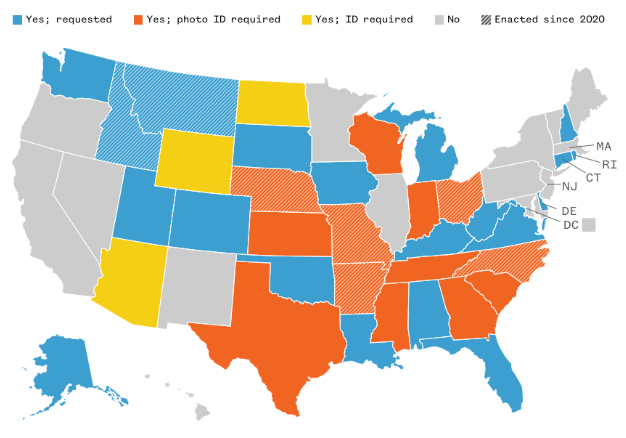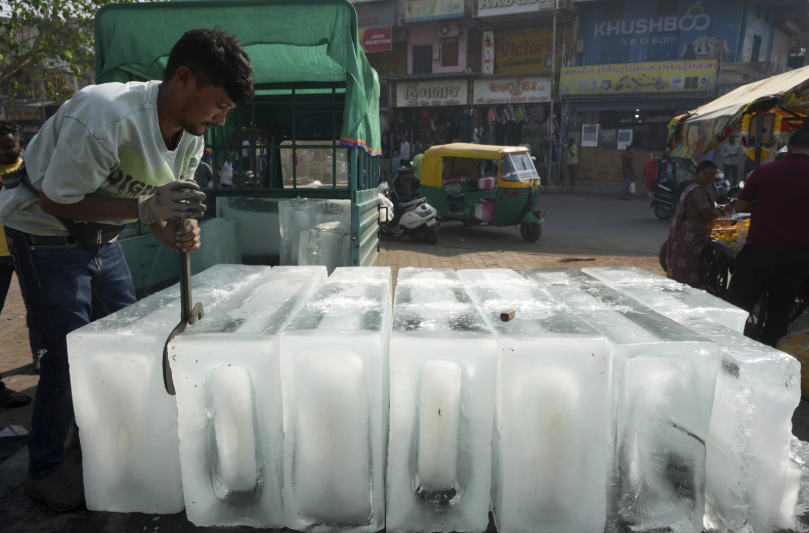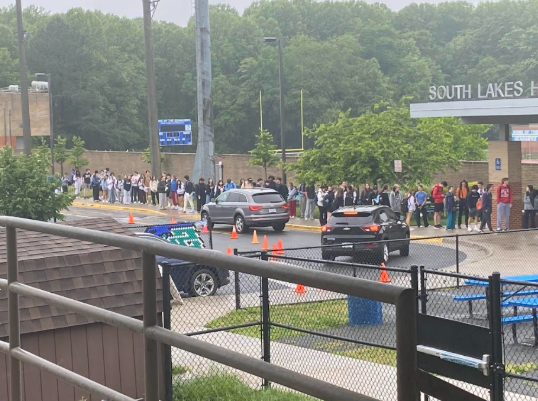Headlines screaming, candidates talking over one another, a global pandemic, insurrection in the capitol building: most Americans remember the turmoil that plagued the 2020 election. Now, with the same two presidential candidates ramping up the heat on their campaigns, many Americans are wondering if history will repeat itself.
Several pieces of legislation emerged following the 2020 election that could impact this year’s election. Many of these reforms were created with the aim of improving election security, an issue that was at the forefront of the 2020 election.
The 2020 election faced unprecedented challenges: COVID-19 was raging across the country. In fact, the U.S. reached the highest number of cases in November 2020 (40 million infections), the same month as the presidential election.
In response to the ongoing crisis, mail-in voting expanded. According to the Pew Research Center, only about 54% of voters in 2020 voted in person. The other 46% voted with an absentee or a mail-in ballot.
Joe Biden received 58% of either absentee or mail-in ballots while only 32% of votes for Donald Trump were cast through the mail.
After losing the election to Biden in 2020, Trump attempted to overturn the election and was indicted on three criminal conspiracies.
“Each of these conspiracies–which build on the widespread mistrust the Defendant was creating through pervasive and destabilizing lies about election fraud–targeted a bedrock function of the United States federal government: the nation’s process of collecting, counting, and certifying the results of the presidential election.”
Claims of election fraud led Republican lawmakers to tighten access to mail-in ballots.
Democratic lawmakers’ opposed the legislation pointing to the need to make voting more accessible, especially to minority voters.
Several states passed new legislation leading up to the 2024 election targeting mail-in voting.
North Carolina limited the time frame for mail-in ballots to be returned and banned ballot drop-boxes. Other states passed similar legislation, including prohibiting unsolicited ballots.
Ohio, Nebraska, Missouri, and Arkansas imposed tighter voter ID requirements. Requirements vary from state to state with some accepting student ID’s and public assistance cards while others are limited to government issued forms of identification such as passports and driver’s licenses.
Many Republicans praise these new changes. Ohio’s representative Thomas Hall stated, “I think voter ID just took that ‘exceedingly rare’ [voter fraud] and made it almost impossible here in Ohio.”
Although these changes may seem beneficial to election security, there are significant implications, especially for voters of color. According to the League of Women Voters, acceptable photo IDs are less common than people believe: “18% of all citizens over the age of 65, 16% of Latino voters, 25% of Black voters, and 15% of low-income Americans lack acceptable photo ID.”
During his time as Vice President, Biden stated that voter ID laws are “attempt[s] to repress minority voting, masquerading as an attempt to end corruption.”
Individuals lack IDs for a variety of reasons. Elderly citizens may lack the mobility to obtain or update their ID. Low-income Americans often lack the necessary funds. Additionally, many Native Americans do not have the paperwork needed to obtain IDs that conform to state requirements. Other ID-related issues include divorce and marriage and updating name changes.
Despite the impacts of these changes, the evidence of voter fraud is very low. During the 2020 election there were less than 475 potential instances of voter fraud out of the 25 million ballots cast, according to the Associated Press. This number would not have changed the results of the 2020 election.
Among these potential instances, there were 193 criminal convictions relating to voter fraud. The League of Women Voters states, “by those numbers, a person is more likely to be struck by lightning than they are to commit voter fraud.”
It is unclear what will happen in the 2024 presidential election. As November approaches, Americans should review voting opportunities and requirements in their states and plan accordingly. The votes Americans cast this fall could determine the future of elections to come.





















